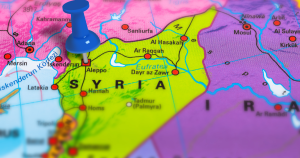On 6 May 2013, the Independent National Coordination for Transitional Justice, in partnership with Al Kawakibi Democracy Transition Center (KADEM) and the General Union of Tunisian Workers, organised in Tunis a consultation to discuss the draft legislation on transitional justice that has been submitted to the National Constituent Assembly on 22 January 2013. The event was a success with the President of the National Constituent Assembly, Mustapha Ben Jaafar, opening the consultation, which brought together more than 120 people, including members of the Constituent Assembly, politicians, judges, legal professionals, academicians, representatives of governmental organisations and civil society.
Statement by Niccolò Figà-Talamanca, Secretary General of No Peace Without Justice:
“Since the revolution that ousted former President Zine El Abidine Ben Ali and the elections for the Constituent Assembly held in October 2011, Tunisians have started clamouring for justice and redress for past human rights violations, addressing their demands to the National Constituent Assembly, the new Government and relevant institutions.
“As a response to these calls for accountability and reparations, the Human Rights and Transitional Justice Ministry has launched a national dialogue on transitional justice, engaging with the population through consultations around the country. This process was facilitated by the Transitional Justice National Dialogue, of which KADEM and the Transitional Justice Academy were one of the five Tunisian members. The Commission drafted a draft legislation on transitional justice that was submitted to the Government on November 2012 and from the latter to the Constituent Assembly last January.
“Since its inception, No Peace Without Justice (NPWJ) and its local partner KADEM, through the Transitional Justice Academy, have contributed to the drafting process through a range of activities aimed at ensuring that it involves all segments of Tunisian society and addresses their views and aspirations. This participatory approach is crucial to build in all citizens a sense of ownership of the transitional justice process, contributing to its success.
“The draft legislation on transitional justice is an important step forward in Tunisian democratic transition and we call on the National Constituent Assembly to continue to involve through an open and transparent process all relevant stakeholders, including victims and affected communities and civil society, and consult with them on those important legislations such as this one, which will affect Tunisia’s future. In particular it is of the utmost importance to reintroduce a strong reference to corruption and economic crimes that need to be fully addressed by the transitional justice process in Tunisia.
“We also look forward the advancement of the legislative process not being jeopardized by political or electoral considerations. Transitional justice cannot be used for political gains but it must be a concerted effort of all political parties and segments of society to ensure Tunisia establishes a transitional justice process that truly responds to the accountability needs of its people. Tunisia can only achieve a new, open and democratic society where citizens trust State institutions by ensuring past violations are fully addressed and victims are redressed.”
For further information, please contact Greta Barbone on gbarbone@npwj.org or +216 28385079 or Nicola Giovannini on ngiovannini@npwj.org or +32 2 548-39 15.
For more information about NPWJ and KADEM’s work on transitional justice in Tunisia, please click here




